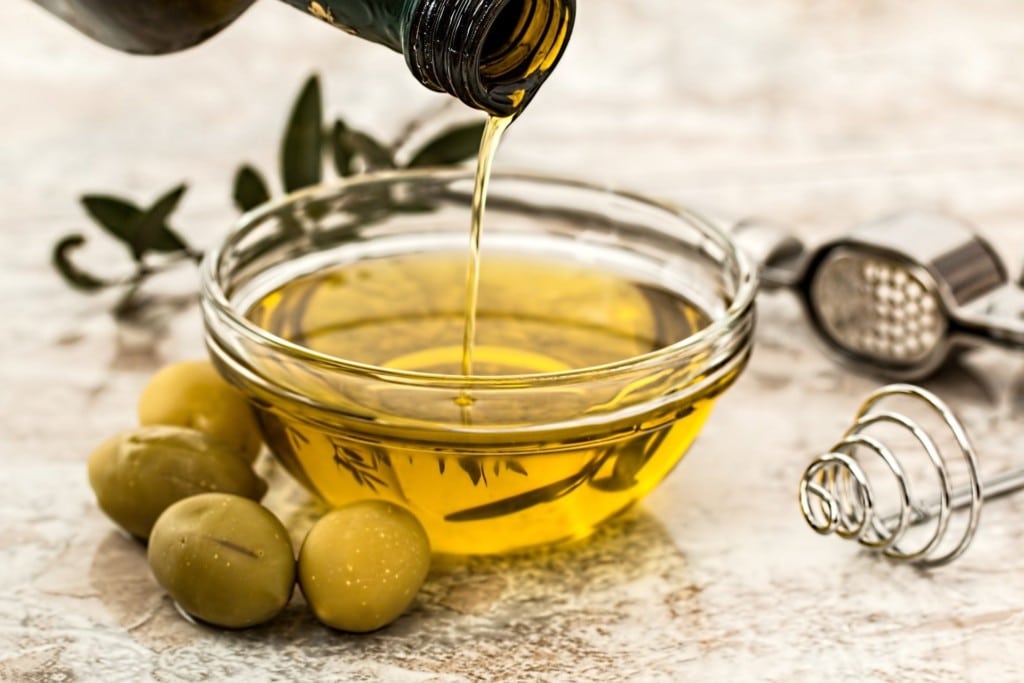Best Use Of Extra Virgin Olive Oil For Hair Health
Updated March 14th 2023

Are you looking for a natural remedy to nourish and strengthen the health of your hair? Look no further than a premium extra virgin olive oil!
This versatile oil has been used as a powerful beauty ingredient for hundreds of years, providing countless benefits to the scalp and strands. Whether you are looking to boost shine or strengthen brittle tresses, incorporating extra virgin olive oil into your routine is an excellent choice. Read on to learn all about why this holistic hair care option should be incorporated into your weekly beauty treatments.
Top Three Benefits Of Extra Virgin Olive Oil For Hair Health
According to Mindbodygreen, there are three main benefits of using extra virgin olive oil for hair health. These are;
- Extra Virgin Olive Oil Hydrates hair
Healthy hair needs nourishment retained and protected to uphold its strength. Hot tools, chemical processing, shampoos containing surfactants (detergents) plus daily wear-and-tear can strain moisture. and nutrients – leaving it vulnerable to environmental stressors such as the sun’s UV rays or air pollution that cause free radical damage leading to porosity which in turn makes water retention a challenge.
Olive oil isn’t only a nutritious cooking ingredient– it can also help to hydrate and nourish your hair! Instead of hydrating directly, olive oil helps the absorption of monounsaturated fats. It has been documented in research that some smaller molecules penetrate deep into each strand while others just sit on top. By utilizing this natural moisturizer you might see shinier locks with improved health
- Extra Virgin Olive Oil Prevents hair damage
High quality extra virgin olive oils are packed with vitamins E and K, two powerful ingredients that provide ample antioxidants to keep your hair looking youthful. Studies suggest free radicals accelerate ageing in our tresses – but don’t worry! The antioxidant power of extra virgin olive oil can help counteract those damaging effects and go a long way towards keeping your locks beautiful for years to come.
- Extra Virgin Olive Oil Reduces Hair Breakage
And finally, in our list of reasons extra virgin olive oil is good for your hair, we turn to Research which suggests it can also act as a lubricant for strands to reduce breakage. Shockingly, a significant amount of damage to hair can actually happen when you are taking a shower. Wet hair is especially prone to damage from the friction caused by lathering and scrubbing during shampooing. Using a protective extra virgin olive oil before washing helps reduce this risk, creating an invisible barrier that shields your strands against raised cuticles, stretching or splintering of delicate locks.
Choosing the very highest quality organic extra virgin olive oil is the best way to ensure each of the benefits to hair health highlighted above can be enjoyed.
Report On Celebrity Use Of Extra Virgin Olive Oil For Hair Health
At Morocco Gold, we loved reading this great new report from The North American Olive Oil Association which gives us a great reminder of the benefits of extra virgin olive oil to our hair.
Drawing on experience of stars including Julia Roberts, Jerry Hall and Miranda Kerr, the article takes us through the whys and hows of using olive oil on your hair.
Celebrities, nutritionists and hair stylists alike often credit the best olive oils around for giving your hair that special glow but just how does it all work?
Why Use Extra Virgin Olive Oil On Your Hair?

As explained in Aboutoliveoil.org , Olive oil is an active ingredient in many shampoos, conditioners, and hair treatments. Recent scientific studies have shown how and why olive oil such as Morocco Gold should be part of your hair care routine.
Does Squalene In Extra Virgin Olive Oil Make Hair Healthier?
Research shows that Olive oil can hydrate the hair due in part to the presence of squalene, oleic acid, and palmitic acid — antioxidants found in olive oil. They are emollients that can provide a protective barrier to help seal in moisture.
Squalene is naturally found in human skin cells. However, after age 30, the levels of squalene production in the body reduce dramatically, which may contribute to dry skin and aging. Squalene has also been found to reduce damage from free radicals. Olive oil contains up to 300-fold more squalene than other vegetable oils.
According to a 2017 study, extra virgin olive oil can also help prevent breakage and split ends. The omega-3 fatty acids found in olive oil will condition and strengthen the hair shaft reducing breakage.
And yet more scientific research has suggested that Olive oil may even help with hair growth! A 2015 study found that oleuropein, a polyphenol contained in extra virgin olive oil induced hair growth on mice.
So with all that science and research to back up the claims, how do some of our high profile celebrities use olive oil to boost their hair health?
Julia Robert’s olive oil hair mask
According to Vogue Italia, actress Julia Roberts creates an emulsified mixture of extra-virgin olive oil with a little warm water and leaves it on her hair as a DIY mask for around half an hour.
Jerry Hall’s overnight olive oil hair treatment
Jerry Hall shared her olive oil hair care tips with the Daily Mail. In her own words “On Sunday nights I massage it in, like my mother taught me, tuck my hair under a shower cap, tie a scarf over it and leave it as long as I can. Overnight is ideal, but it can stain pillow cases, so I tend to let it soak in while watching a film, before washing it out”
Miranda Kerr’s overnight olive oil hair treatment
Model Miranda Kerr told Elle France that she uses olive oil and lemon juice on her hair weekly boost shine. “Minimum once a week, I mix both and I leave the mixture on as long as possible. This homemade recipe from my mum taught me and I still haven’t found a better one to repair my hair after the shows.”
How To Make A Morocco Gold Olive Hair Health Treatment
If you fancy doing a bit of hair health DIY, you can make your own olive oil hot oil treatment with Morocco Gold Extra Virgin Olive Oil in your kitchen.
Apply this treatment to freshly washed hair. If you have dandruff or an oily scalp, apply the treatment to the ends of your hair only. You can treat your hair once a week.
- Microwave 2-4 tablespoons of Morocco Gold extra virgin olive oil in a microwave-safe bowl for 10 seconds.
- Test a small amount of the oil on your hand to make sure the oil is not too hot.
- Apply the oil evenly throughout your hair and massage it into your scalp. You can comb it through.
- Cover your head with a plastic shower cap or wrap your hair with plastic food wrap. Wrap your head with a towel to trap the heat.
- After 15 minutes rinse.
You can also add a few drops of essential oil to the olive oil for extra benefits. Lavender oil is good for all hair types, rosemary is good for oily hair and dandruff, and peppermint is invigorating. Just make sure not to get it into your eyes!
Dermatologists Back Extra Virgin Olive Oil As Top Moisturizer For Hair
Extra Virgin Olive Oil is an effective moisturizer for hair, according to a recent medically reviewed report from Insider.
The review, which sets out practical ways to use cold-pressed olive oil to prevent split ends and moisturize hair, claims the oleic acid and squalene present in a good olive oil is particularly effective in increasing hair elasticity.
It states:
These fatty acids not only offer health benefits when consumed but may also offer cosmetic benefits to your hair when applied topically.
Insider
The article lists three potential benefits of extra virgin olive oil for hair as well as the risks of using it. These are:
1/ Extra Virgin Olive Oil Moisturizes hair
Oleic acid, which is an emollient with softening and moisturizing properties. Olive oil’s high oleic acid content is thought to help moisturize hair by penetrating the hair shaft to restore moisture, says Fabio Scalia, a certified cosmetologist, and owner of Fabio Scalia salons.
Squalane is another type of emollient popular in skincare products due to its ability to hydrate skin.
2/ Extra Virgin Olive Oil Helps prevent split ends
The moisturizing properties of olive oil may also help strengthen the hair and increase its elasticity, helping to prevent breakage or split ends.
However, olive oil can not repair split ends once they occur, Scalia says. While olive oil can help soften the hair and keep it healthy, the best way to deal with split ends is to get regular haircuts to remove any breakage.
3/ Olive Oil May help stimulate hair growth
A 2015 study found that a component in olive oil known as oleuropein does have an impact on the hair growth cycle in mice, but similar studies have yet to be conducted in humans.
Plus, many individual factors, like diet, genetics, and hormones, can impact hair growth, making it hard to study olive oil’s direct effects on hair growth in humans, says Karen Lal, DO, Chair for the Society of Pediatric Dermatology.
But, says Insider, olive oil does contain vitamin E, which can help smooth hair and reduce frizz giving the appearance of hair growth, Scalia says. Vitamin E‘s antioxidant effects may also support a healthy scalp, which could promote hair growth, but more research is needed.
Potential risks of using olive oil for hair
The medically reviewed article from Insider was also keen to point out some additional warnings regarding the use of extra virgin olive oil for hair.
Scalia recommends olive oil for people with curly, thick and coarse hair that is more prone to frizz and dryness. Olive oil applied to fine or straight hair, on the other hand, could potentially weigh it down and make it feel greasy.
“In individuals prone to dandruff, [olive oil] can actually worsen the condition like throwing kerosine onto a fire,” Zito says. “The more often you apply it, the greater the chance of exacerbating the condition.”
Why Morocco Gold extra virgin olive oil for hair?

The health benefits of olive oil have been proclaimed for centuries. In fact, olive oil is gaining increasing popularity as an all-natural beauty product. What it does for your body on the inside as a nutritional product, it does for your body on the outside as a beauty aid.
Who Uses Extra Virgin Olive Oil On Their Hair
Nowadays, there is a growing list of celebrities who are well aware of extra virgin olive oil uses and its properties.
Julia Roberts & Extra Virgin Olive Oil
In 2017, Julia Roberts was named Most Beautiful Woman by People magazine for the 5th time in her life. Part of her beauty secrets, using extra virgin olive oil on her hair, as well as skin and nails according to an interview given to Vogue Italia. Another one of her secrets – “being around nice people that make you feel good.” She explained that her kids and their father are very loving, and she thinks that’s what makes people seem beautiful: kindness and love.
Source: Variety.com / Vogue
Extra Virgin Olive Oil & Miranda Kerr

If we had to highlight one quality of Victoria’s Secrets model Miranda Kerr, apart from her penetrating stare, it would be her long, flowing locks that steal the spotlight whenever she attends an event. She has the world’s greatest hairdressers at her disposal, but Miranda has revealed that she relies on a DIY treatment to keep her hair looking good. Kerr told Elle France that she uses extra virgin olive oil and lemon juice on her hair weekly boost shine.
“Minimum once a week, I mix both and I leave the mixture on as long as possible. This is a homemade recipe that my mum taught me and I still haven’t found a better one to repair my hair after the shows.”
Extra Virgin Olive Oil & Jerry hall

Jerry loves her luscious long locks and has been inspired by her mother who was glamorous into her old age
“My mother’s the one I should thank. Not just for passing on the genes for long legs and thick hair, but for bringing me up with style and skincare habits that I have kept up for life. She was a big believer in avoiding sugar (long before it was fashionable to do so), drinking a lot of water and getting enough sleep. Her best beauty tip — one I still follow religiously to this day — was to slather my hair and skin in extra virgin olive oil, once a week, to keep both soft and supple. But more important than any of this was her attitude towards getting older.
So no wonder you won’t find me suggesting that a woman should cut off her hair when she reaches a certain age. My long, blonde hair has been my trademark ever since I started modelling in the Seventies, when I was scouted sunbathing in St Tropez.
At work, my hair takes a lot of punishment from hot rollers and curling tongs, but the extra virgin olive oil keeps it beautifully shiny”.
Jerry Hall
So How Does Extra Virgin Olive Oil Help Protect Your Hair?
According to trichologist and colorist Bridgette Hill with Paul Labrecque Salon and Skincare Spa, incorporating extra virgin olive oil into your haircare regimen can seal moisture into the hair fiber, which helps with elasticity and results in less breakage.
Additionally, Hill says hair oils can penetrate your hair strand and reduce the amount of water your hair absorbs which, in turn, cuts down on shrinkage and frizz. Trichologist and celebrity stylist Kari Williams says that although most can benefit from using it, thin hair can be easily weighed down by olive oil, so those people should avoid overdoing it.
Does Extra Virgin Olive Oil help with your scalp?
Now, as for your scalp? “The one caveat I will give you is that extra virgin olive oil can directly feed the yeast that grows dandruff on your scalp,” board-certified dermatologist Saya Obayan, MD, explains. To be extra safe, Hill advises against applying it to the area at all. However, it can be helpful for dry scalp by restoring lost ceramides and oils, so if you choose to apply extra virgin olive oil to your roots, Dr. Obayan recommends using it lightly and not dousing the scalp.
In addition to moisturizing agents, extra virgin olive oil contains antibacterial properties that help fight common skin conditions, such as lice and dandruff, that also impact the quality of hair.
Can Extra Virgin Olive Oil make your hair grow faster?
Extra virgin olive oil in hair does encourage hair growth and health: it reduces hair loss by preventing the hormone dihydrotestosterone, or DHT, from binding to the scalp, and olive oil contains antifungal properties and moisturizer that stimulate hair production, too. Olive oil helps make hair roots stronger and contributes to making hair shinier and softer as well. It acts as a natural conditioner and delivers moisture to the scalp as well as hair strands.
Dr. Obayan points to a study that showed that there is a component of extra virgin olive oil called oleuropein that can directly impact the growth cycle, but that study was done on mice.
Can cooking olive oil be used for hair health?
Hill and Williams are both fans of using the kitchen ingredient, but stress the importance of choosing an unrefined, cold-pressed extra-virgin olive oil. Olive oil is an excellent carrier oil, so Hill says it can also be blended with others like castor oil or black seed oil if you really wish to explore the possibilities for using olive oil for your hair.
And, if you do, Williams recommends using olive oil as a hot oil or conditioning treatment, applying them once a week if you dye your hair or you have dry, damaged ends. Just warm 2-4 tablespoons of olive oil (depending on the density of your hair), massage it through the length of your hair, and cover it with a plastic cap. Wait at leastan hour to let the oil penetrate your hair cuticle (both Williams and Hill recommend leaving it overnight, so longer really is better) before rinsing it out.
Can you use Extra Virgin Olive Oil for hair loss?
“We know that olive oil does have a good anti-inflammatory property to it, which can help calm down some of the inflammation on your scalp,” Dr. Obayan explains. So if your hair loss is due to inflammation, olive oil could, theoretically, help to reduce some hair loss. However, this is where your doctor or dermatologist comes into play. If you’re experiencing hair loss or scalp inflammation, you could be dealing with a bigger underlying issue, so please go to a professional before you start self-treating with olive oil.
Benefits and Side Effects for Hair Growth 2020
Regardless of whether using olive oil as a dietary supplement or topical treatment to stimulate hair growth, people should use certain types of olive oils, which are high-quality extra virgin olive oils, to make hair the strongest and healthiest that it can be.
How to Use Extra Virgin Olive Oil In Hair Health
Step 1/ Pour 1/2 cup of olive oil into a microwave-safe bowl. Heat it in the microwave for 20 seconds, or until warm.
Step 2/ Place a towel over your shoulders to protect clothing.
Step 3/ Put a small amount of olive oil in the palm of your hand and massage it into your hair. If you have a dry scalp, massage a small amount into your roots, as well. Repeat the process of massaging small amounts at a time into the hair until the hair is entirely covered.
Step 4/ Place your hair loosely on your head and cover it with a plastic shower cap.
Step 5/ Relax for at least 30 minutes while the oil works into your hair.
Step 6/ Shampoo your hair with a mild shampoo. Condition your hair with your usual conditioner to re-hydrate strands. Rinse it out completely. You will see that the treatment makes your hair much softer and much more manageable, as well as gives it some added shine. Better hair health.
Source website: leaf.tv
There is no end to the amazing qualities of Morocco Gold extra virgin olive oil.
